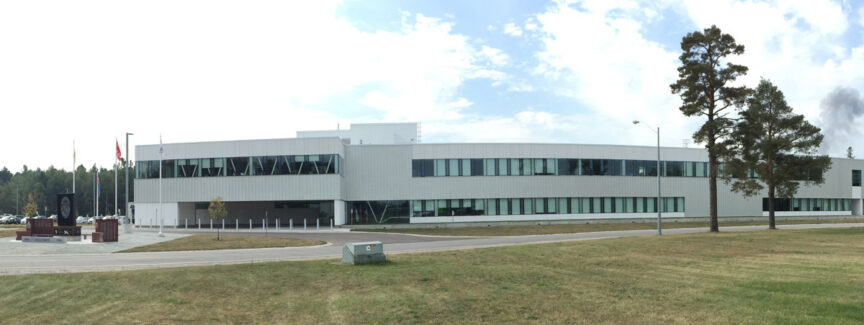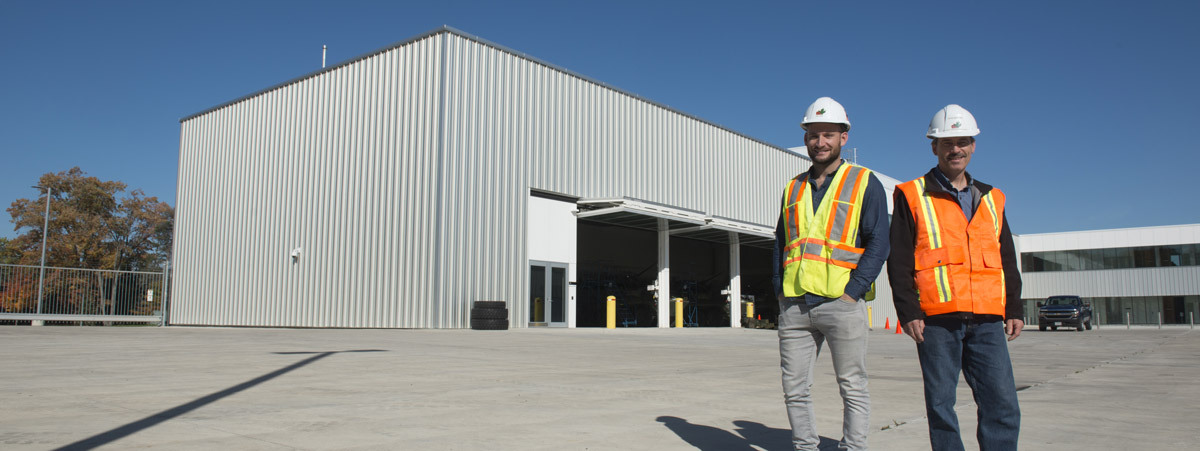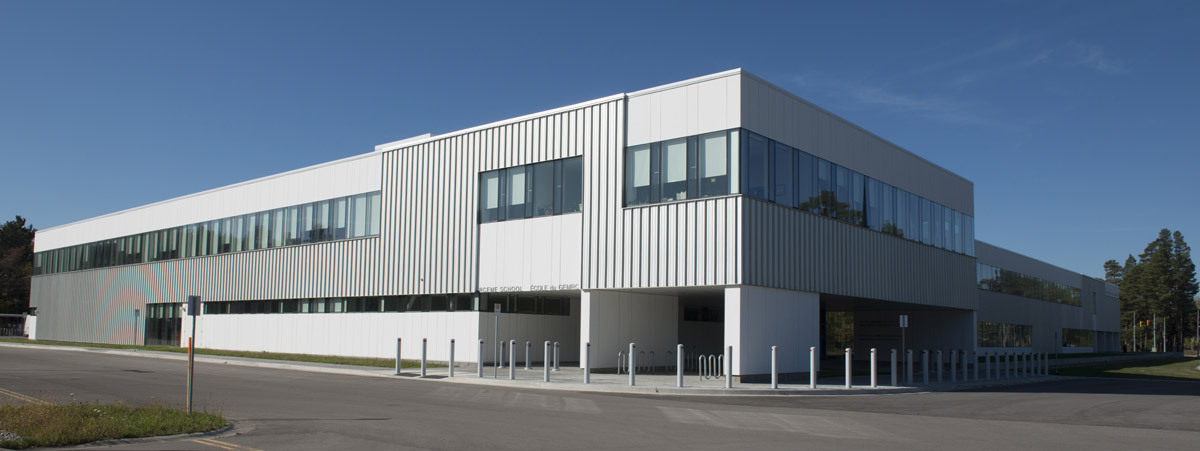

From the white roof that reflects the sunlight and helps keep the multi-storey building cool to the 70 geothermal wells sunk 120 meters into the ground, the new Royal Canadian Electrical and Mechanical Engineering School at CFB Borden showcases the full range of green technology.
The new 13,000-m2 facility houses specialized workshops and garages for maintaining and repairing everything from large military vehicles and equipment, to lasers and targeting systems, to metalwork, fabric, fiberglass and woodwork. Certification at the LEED Silver level is pending.
“Green technology has changed so much in the last 10 years,” says David Britton, Coordinator, Construction Services, who headed up the $37.5-million project for DCC. “We work closely with consultants to learn what’s available on the market and then to ensure what is chosen is really going to meet the Client-Partner’s needs.”
The building envelope exceeded National Energy Code requirements by including, among other features, solar thermal chimneys used for passive cooling, ventilation and natural light in the main garage bay. The geothermal system—a low carbon footprint, renewable source of energy from ground heat and the first of its kind on the base—is a hybrid, integrating supplemental boilers for heating and chillers for cooling.
The building also features rainwater collection to supply non-potable water, and a building management system that works with the LED lighting inside and out to ensure smart energy usage. The ventilation system also keeps fresh air circulating throughout the school, particularly in areas such as the garages.
Even the parking lot is green, with swales and other features designed to gather and direct rainwater run-off. Permeable concrete (akin in structure to a Rice Krispie square) in low-traffic areas lets water drain right through, rather than pooling on the surface.
Begun in 2013, the new school was completed in 2017, and was recently nominated for a sustainability award from the Real Property Institute of Canada.

